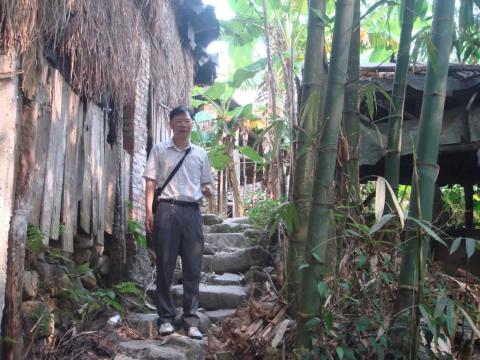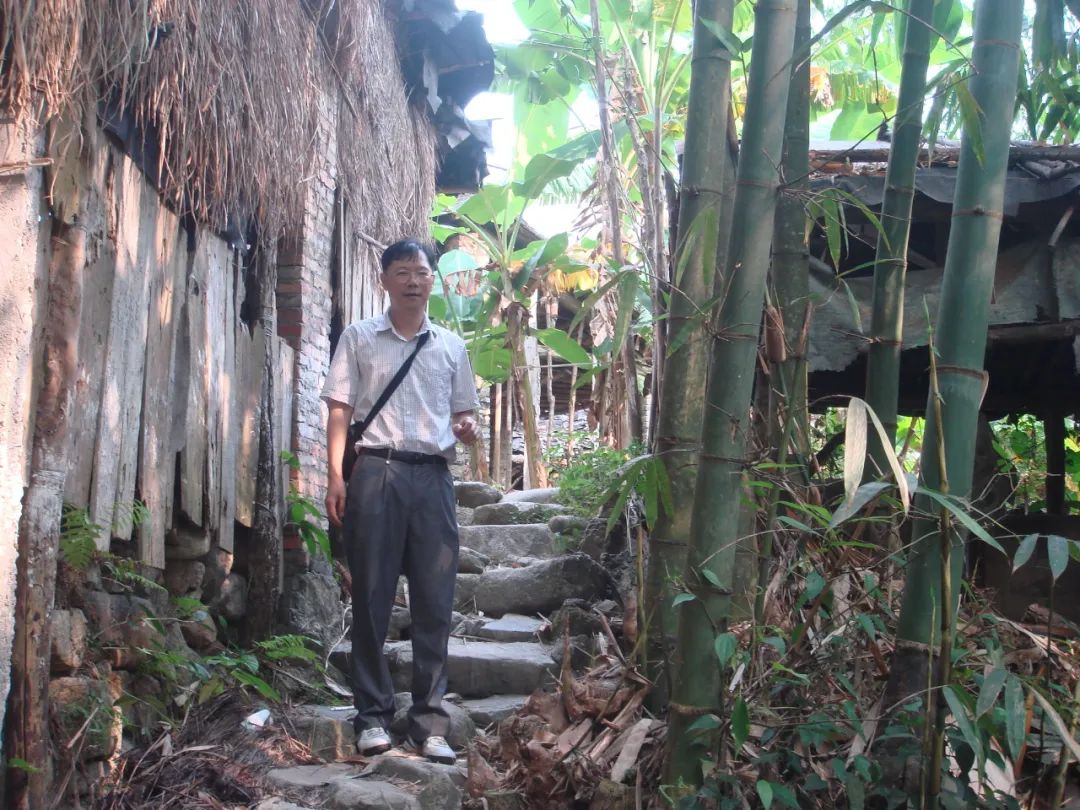
October 6, 2012
Location: Dongshui Village, Xinwei Town, Yangxi County, Yangjiang City, Guangdong Province
Jingxiang Travel Notes Chapter 25丨Deep in the Mountains
When we enter Xinwei Town, we enter the mountainous area. We then walk deeper into the mountains. Along the way, there are green mountains and gurgling water. The mountain roads are lined with bamboos. The zigzag-shaped bamboo leaves are still green and full of life in mid-autumn.
This cement road, which can accommodate two cars running in opposite directions, brings the modern atmosphere from outside the mountains into this quaint mountain village. The "hardened" project of roads connecting every village opens the door to modern civilization in Dongshui Village. Car exhaust began to invade the air above this clean soil. However, after many years, there is still no sound of selling tourist souvenirs, no signboards for tourist attractions, and no booths selling tickets. The villagers are still doing what they should do every day. They follow the four solar terms, work at sunrise and rest at sunset.

Under the hibiscus tree full of flowers is an old woman who can't rest. Perhaps it is the labor activity that makes her "movement everlasting";

The old house with a clean facade still retains the slogan "Long Live Chairman Mao" on the door. It is made of mortar and is an indelible mark of the times;

Bundles of firewood are neatly placed beside the house, which will create wisps of smoke at dusk;

The open space in front of the house is planted with rows of black sugarcane, and each row of black sugarcane is neatly sandwiched by two bamboo pieces. The care of the crops shows that they are serious and meticulous about farming, and they get the joy of life from farming.

The clear spring flows downstream and is guided by bamboo tubes, which is truly "tap" water. Organic vegetables are cooked in the clean mountain spring, and a home-raised hen is slaughtered during the holidays. This kind of simple pastoral life is enough to cleanse the inner impetuousness and support one's life: eat what is available in the soil and enjoy the local customs. What the outside world is like is what people outside think about. Don't envy glitz, don't compare with material desires.

In the village, you can see bundles of neatly chopped bamboo. These bamboos are not used to weave baskets or chicken coops. They are the raw materials for making straw paper. These raw materials are soaked in a mountain spring pool for half a year, then fished out and soaked in a lime pool to a certain extent. They can then be taken out and stacked neatly to dry for later use and become materials for the next process.

With the development of science and technology today, mechanization can be used from the beginning of bamboo felling. Chemical catalysts can easily shorten the soaking time from half a year to a few hours or even seconds. Crushing these materials is even easier, just press a button.
However, the modern atmosphere seems unable to erode this village with beautiful mountains and clear waters and simple folk customs. "Tao Te Ching" says: "Don't use hundreds of tools." It means: Even if there is a tool that can be operated by one person with the efficiency of ten or a hundred people, you should not use it. It is best to go back to the tool. Primitive state (interpreted using today’s concepts: because scientific development will inevitably bring pollution and seriously affect people’s living environment). There is really no need to use any equipment here. The unique water resources not only provide sufficient power for the hydropower station here, but also effortlessly push the Wukan Dazui (pronounced "right") through the ancient waterwheel, using the most powerful force. Primitive means of producing papyrus.

This handmade workshop craft has been inherited by bamboo-producing areas far away from modern civilization due to its characteristics of long production cycle, large amount of labor, low output and low efficiency. The grid they used was actually a papermaking tool invented by Cai Lun!


When people in the city enjoy the prosperity and exhaust gas, they yearn for this peaceful land in their hearts, and always want to take the time to visit it to relieve tension and fatigue. When the various show-offs brought by car exhaust make the eyes of the villagers shine, the simplicity here is replaced by materialism - it will always come, it is just a matter of time, just like the angular boulders in the ravine thousands of years ago. Now it has been washed away by the weak water and is as smooth as an egg. Qualitative change quietly occurs amidst quantitative change.
Preview of the next article: Still in Yangjiang itself, we walk into another ancient village with you - Yashao Shiba.
